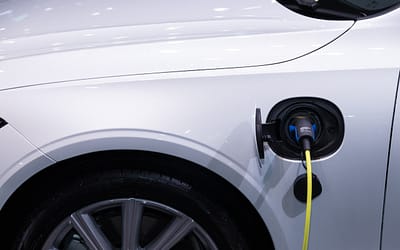This post was originally published on Good on You
Our editors curate highly rated brands that are first assessed by our rigorous ratings system. Buying through our links may earn us a commission—supporting the work we do. Learn more.
Calvin Klein is an iconic American brand. Sadly, it still isn’t doing enough for people, the planet, and animals, and has received an overall score of “Not Good Enough”, falling from our middling “It’s a Start” to our second-lowest rating. Keep reading to learn more about the details of Calvin Klein’s rating.
This article is based on the Calvin Klein rating published in February 2024 and may not reflect claims the brand has made since then. Our ratings analysts are constantly rerating the thousands of brands you can check on our directory.
Calvin Klein’s ethics aren’t as crisp and clean as its boxer briefs
Calvin Klein was founded by its namesake in 1968 with a line of refined womenswear, later branching out into jeans, menswear, fragrances, jewellery and more. Before it made its iconic underwear, the brand was most loved for its denim and logo-print jersey items, and it is often noted as a leader in the minimalistic design that defined the 1990s. While it has appointed notable fashion designers to its creative helm in recent years, much of Calvin Klein’s success in the last two decades has come as a result of licensing agreements for its various product lines, notably fragrances.
Today, Calvin Klein is owned by PVH (which is also the parent company of Tommy Hilfiger), and is considered an iconic all-American brand, with sales of $9.3bn in 2022. It’s known for its coveted logo-detailed underwear, denim jeans, and highly influential—sometimes controversial—advertising (it recently broke the Internet with its campaign featuring The Bear’s Jeremy Allen White). In fact, its marketing campaigns have regularly caused contention through the years. Elsewhere, the brand’s sustainability credentials don’t look great, as its rating has fallen from “It’s a Start”—an indication of progress, to “Not Good Enough”, in our recent review.
So we had to know: how does Calvin Klein—one of the most recognisable brands in the United States, if not the world—impact people, the planet, and animals? If we care about the planet and all its inhabitants, should we shop Calvin Klein or look for alternatives? Let’s find out once and for all: how ethical is Calvin Klein?
Environmental impact
Calvin Klein is rated “Not Good Enough” for the planet. First the good news: it uses some lower-impact materials in its line, including organic cotton. It has set a science-based target to reduce greenhouse gas emissions from both its direct operations and supply chain.
And the not-so-good news? While a climate target is great, there is sadly no evidence the brand is on track to meet said target, nor does it appear to minimise any textile waste when manufacturing its products or to take actions to protect biodiversity in its supply chain.
Labour conditions
Calvin Klein isn’t making enough progress on improving labour conditions, and its score here has dropped from “It’s a Start” to “Not Good Enough”.
Some of its supply chain is certified by labour standards that help ensure worker health and safety, living wages, and other rights, and it received a score of 41–50% in the Fashion Transparency Index (a lower score compared to previous years), and the brand’s parent company PVH has signed the International Accord, which works to ensure workplace safety in the garment industry.
While the brand claims to have a program to improve wages, there’s no evidence it ensures its workers are paid living wages in most of its supply chain or that it supports diversity and inclusion in its supply chain.
Calvin Klein has also been linked to sourcing cotton from the Xinjiang region in China, which is at risk of using Uyghur forced labour, and while it claims to have taken insufficient steps to remediate, as recently as December 2023 there were reports that the brand may have inadvertently sourced from the region through subsidiary companies. You can do better for people, CK.
Animal welfare
Calvin Klein is simply “Not Good Enough” for the animals. While it does have a formal animal welfare policy aligned with Five Domains and traces some animal products to the first stage of production, it still uses leather, wool (some of it certified by the Responsible Wool Standard), down (some of it also certified by the Responsible Down Standard), shearling, silk, and exotic animal hair.
The brand doesn’t appear to use fur, angora, or exotic animal skin in its designs.
There are so many cruelty-free alternatives out there, so improving the score here is as easy as opting out of animal-derived fabrics.
Overall rating: ‘Not Good Enough’
Overall, we’ve rated Calvin Klein as “Not Good Enough” based on our own research. It falls from our middling “It’s a Start” rating in this most recent review. The brand had been making a start for people and the planet when we had previously rated it, but it still needs to address its waste and emissions issues and, at the very least, ensure payment of a living wage across its supply chain. It should also work to remove animal-derived fabrics from its products and opt for more lower-impact, cruelty-free alternatives.
Rick Relinger, PVH’s chief sustainability officer, said in its most recent corporate sustainability report (2022): “Ultimately, actions speak louder than words, so we remain committed to transparency and continue to enhance our capability to report increasingly more data on our impacts.” But this doesn’t align with the drop in Calvin Klein’s Good On You rating from its most recent review, nor does it match up with the brand’s decreased transparency, or the lack of evidence about whether it’s on track to meet its environmental targets. In 1980, Brooke Shields controversially asked “You wanna know what comes between me and my Calvins? Nothing.” But in 2024, the answer ought to be: “Ethics”.
Note that Good On You ratings consider hundreds of issues, and it is not possible to list every relevant issue in a summary of the brand’s performance. For more information, see our How We Rate page and our FAQs.
Good swaps
“Good” and “Great” alternatives to Calvin Klein
The post How Ethical Is Calvin Klein? appeared first on Good On You.





0 Comments